Representatives from some 70 companies and organizations, including Gant, Berendsen, and Mini Rodini, were on site for Textile Challenge 4, held in the Stockholm Fashion District on 6 February. The day’s purpose was to come together around the question of how production in the textile and fashion industry can become more sustainable – with a focus on water, energy, and transportation.
Seminars were grounded in global sustainability goals and went further to address research and statistics linked to clothing consumption as well as energy and water usage. After the seminars, the audience listened as three companies described their sustainability journeys – the young fashion and service company XV Production, FOV Fabrics with manufacturing in Sweden, and the international sports fashion brand Peak Performance.
The speakers’ message to the audience can be summarized as addressing improvements in the right part of the value chain – where it makes the most difference – as well as working on the basis of facts and working in collaboration. This afternoon’s workshop challenged companies to look more specifically at their own roles in the production process and how participants could make improvements in their own organizations to contribute to increased sustainability.
“Several of the participants have been at previous Textile Challenges and it’s great to see their interest and commitment. In general, we also notice that, increasingly frequently, there are activities organized around sustainability for the textile and fashion industries. It’s a positive development that promotes vibrant dialogue and ever closer collaboration between different companies, organizations, and initiatives – fully in line with what the platform wants to contribute to as, together, we can make a difference,” says Lena-Marie Jensen, who is coordinator for the knowledge groups within Textile & Fashion 2030.
During Fashion Week Trade, which took place 3-8 February in the Stockholm Fashion District, Exposé was also exhibited. Several hundred people had the opportunity to be inspired over the course of the week by results based on the platform’s work.
Filmed seminars and speakers’ presentations can be found in our Media Archive>>>
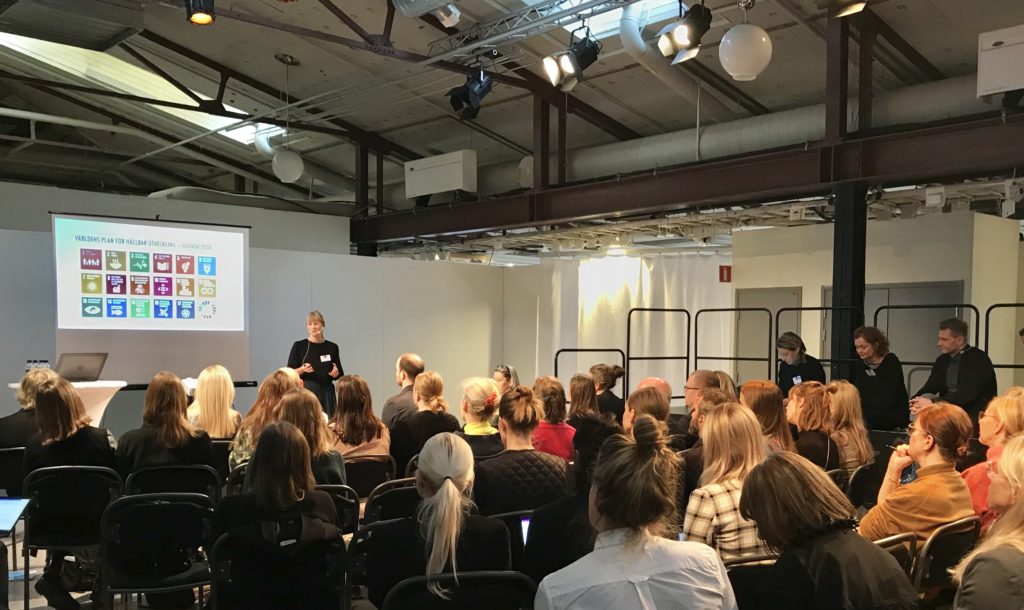
Global sustainability goals and basic facts
Lotta Amsén, sustainability consultant at Trossa, started off the day by speaking about the global sustainability goals and how companies can identify risks and set goals to work systematically with improvements throughout the production chain. She highlighted the importance of setting clear goals that can be followed up on and making action plans with both short- and long-term activities. To make continuous improvements and have a close dialogue with suppliers. An important question to ask yourself is: how can I do well without doing harm? What is my fundamental responsibility, what can I influence, and what can we do with our business and business model to actively contribute to these goals?
Malin Viola Wennberg from RISE (filling in for Björn Spak) presented the extensive final report of the research program Mistra Fashion Fusion, which presents various data on the climate impact of Swedish clothing consumption. Her take-home message to the audience is to talk and share information about the good work being done in each company so that all these good examples can be merged into shared best practices.
“In order to know how we can get better, we need to know where we are today, and that requires a transparent value chain,” she said.
Read the report here (link to Mistra Fashion Future)
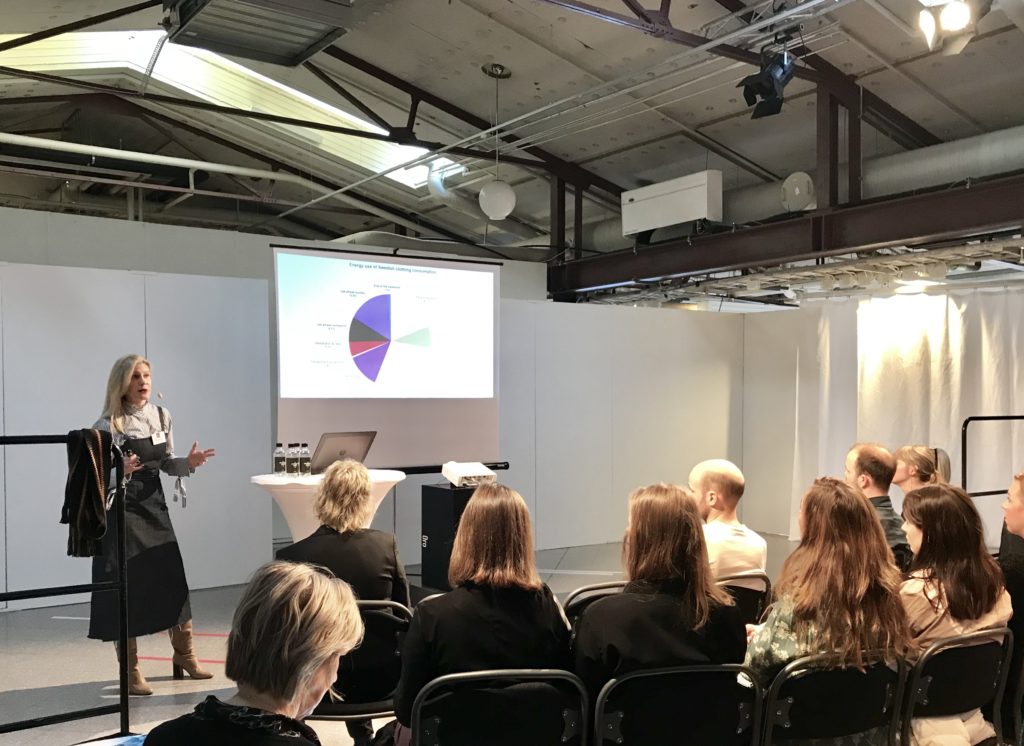
Alina Klaseva, Program Manager for Sweden Textile Water Initiative (STWI), spoke about, among other things, the program started by STWI in 2012 that helps suppliers to the Nordic textile and fashion industry to contribute to better water management and ultimately improve the social conditions in supplier countries.
“To produce a cotton shirt, 3,000 liters of water is required, which corresponds to 12,680 glasses of water, which in turn corresponds to one year of drinking water consumption for one person,” Alina Klaseva noted, in order to put water consumption in textile production into context.
Three impacts in corporate sustainability work
Felicia Lundberg, Project Manager and co-founder of XV Production and fashion brand XV Atelier, spoke about the journey from starting her own clothing brand with three friends at the age of 19 to currently running a service company that works throughout the chain, from design to production, with re-make and repair services with known brands as customers.
“I hope the industry will continue to be hungry and not be content once the goals for Agenda 2030 have been achieved,” says Felicia Lundberg.
Fredrik Johansson, Business Developer at FOV Fabrics, a producer of functional materials with production conducted in Borås, described the company’s sustainability work as part of its management system. Committed teamwork is the basis and resource smartness is an example of a principle that is to permeate the entire business. He stressed the importance of highlighting the entire value chain in sustainability work and how collaboration and grounding work in facts are crucial to achieving sustainable improvements.
“Customer focus will shift to social focus,” says Fredrik Johansson.
Åsa Andersson, Sustainability and Quality Manager at Peak Performance, highlighted a number of different collaborations that illustrate the importance of learning from each other to move forward in sustainability work. One example is membership in the SAC (Sustainable Apparel Coalition) organization that led to Peak Performance’s starting to use the Higg Index as an important instrument for the company, both internally and in collaboration with its suppliers. Åsa also highlighted collaboration within the United Nation’s “Fashion Charter for Climate Action” and STICA, the Swedish Textile Initiative for Climate Action, as important collaborations.
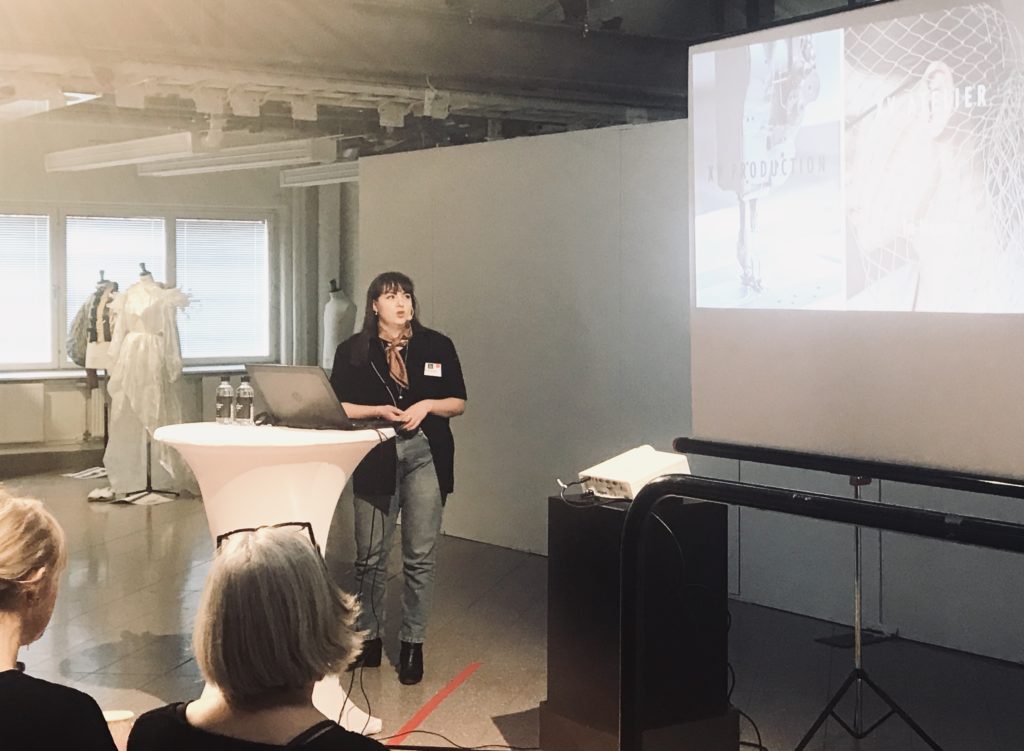
Felicia Lunberg
XV Production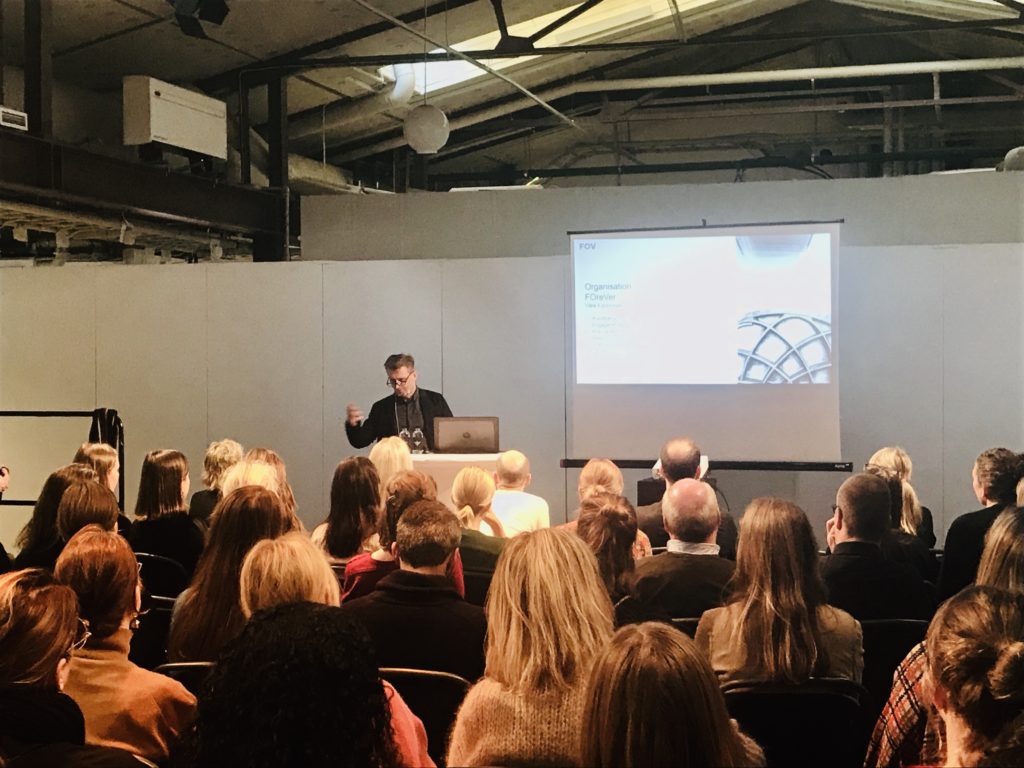
Fredrik Johansson FOV Fabrics 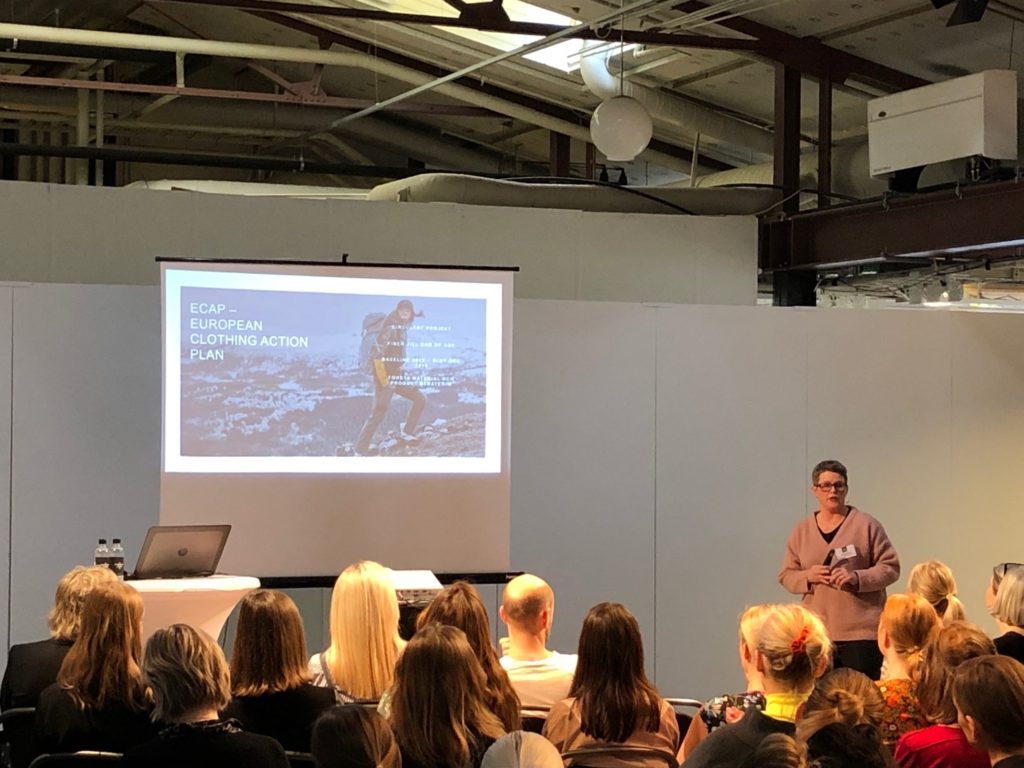
Åsa Andersson
Peak Performance
Framstegsmodellen
Jonas Larsson, Researcher at the Swedish School of Textiles, rounded out the seminar portion by talking about Framstegsmodellen– a tool developed within Textile & Fashion 2030 that will support small- and medium-sized enterprises in following up on their sustainability work. He describes how the tool is based on tools and models already designed, promoting both recognition and also thus benefiting from previous work. The tool can measure progress that can be linked to environmental benefits. It also provides the opportunity to group together companies with similar challenges so that other initiatives and organizations, which are experts in specific areas, can take on and support businesses on their journey.
Learn more about Framstegsmodellen here>>>
Closing workshops – how can we contribute?
Over the course of the afternoon, it was time to move from words to action. In one workshop, participants worked to break down what each company can contribute themselves. In order to be able to consciously influence their future choices, a number of issues were discussed. Everything from how participants viewed what strategic sustainability-related guidelines exist within their own organization today to what could be a first step in order to consciously influence their future choices in relation to water and energy-intensive processes and transport. What criteria are important when selecting modes of transport, for example? Many choices that affect the environmental impact in production take place in the product development phase. How can product development and design work continuously strive to reduce environmental impact in production?
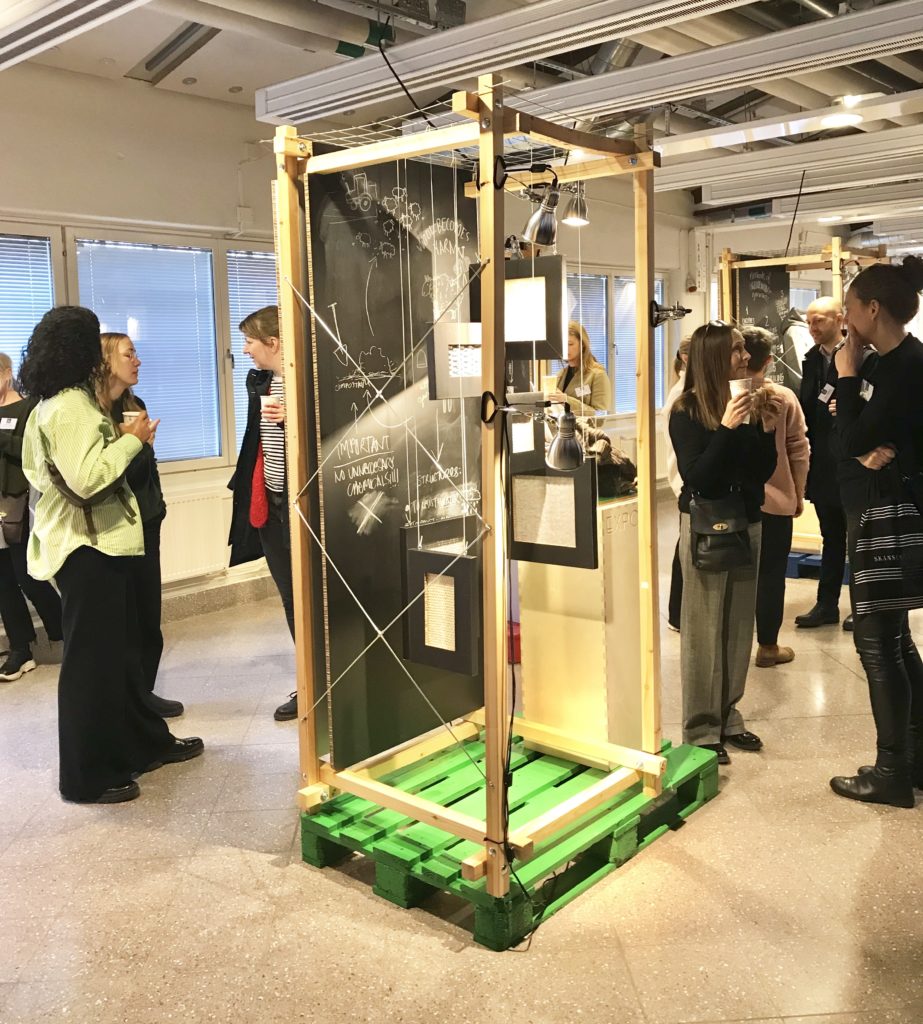
Exposé 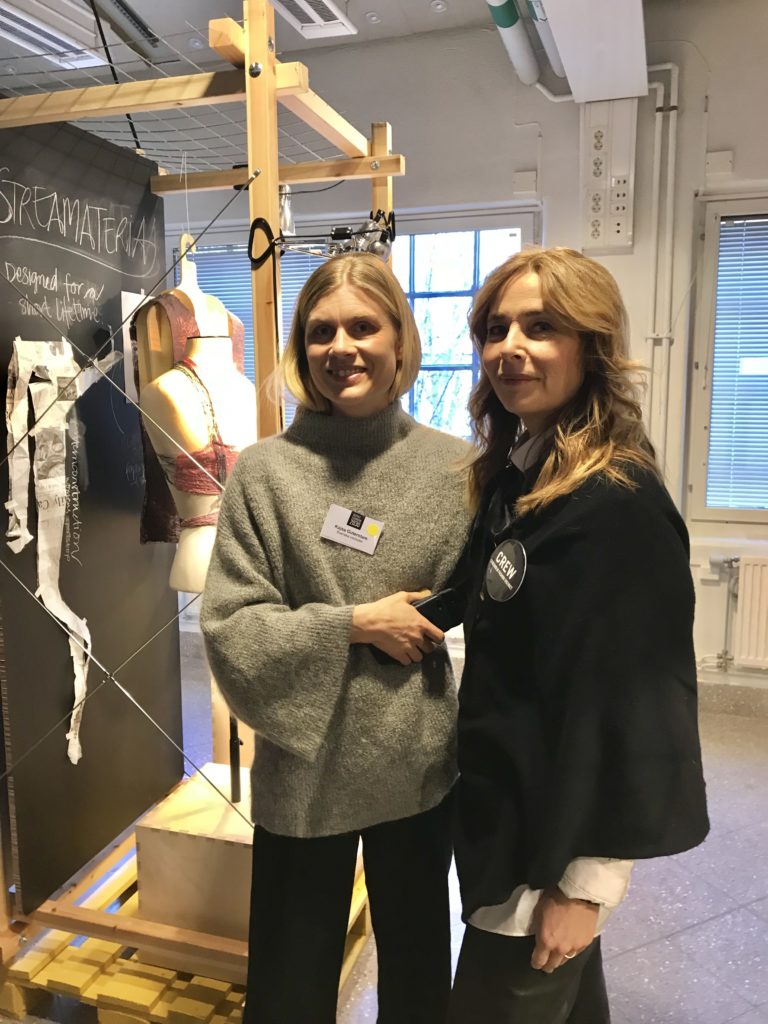
Kajsa Guterstam, Swedish Institute and Helena Walker, Swedish Fashion District
______________________________________________________________________________
Textile Challenge 4, with the theme of Production, is the fourth in the series to provide the industry with insights and tools to create a sustainable future for the textile and fashion industry. The previous three occasions have dealt with product development, transparency, and materials and chemistry. Textile Challenge 4 was arranged within the framework of Textile & Fashion 2030, the National Platform for Sustainable Fashion and Sustainable Textiles.
Textile Challenge 5 with theme Retailers and Distribution is planned for Lund on 26 May. More information and registration can be found at: https://textileandfashion2030.se/





